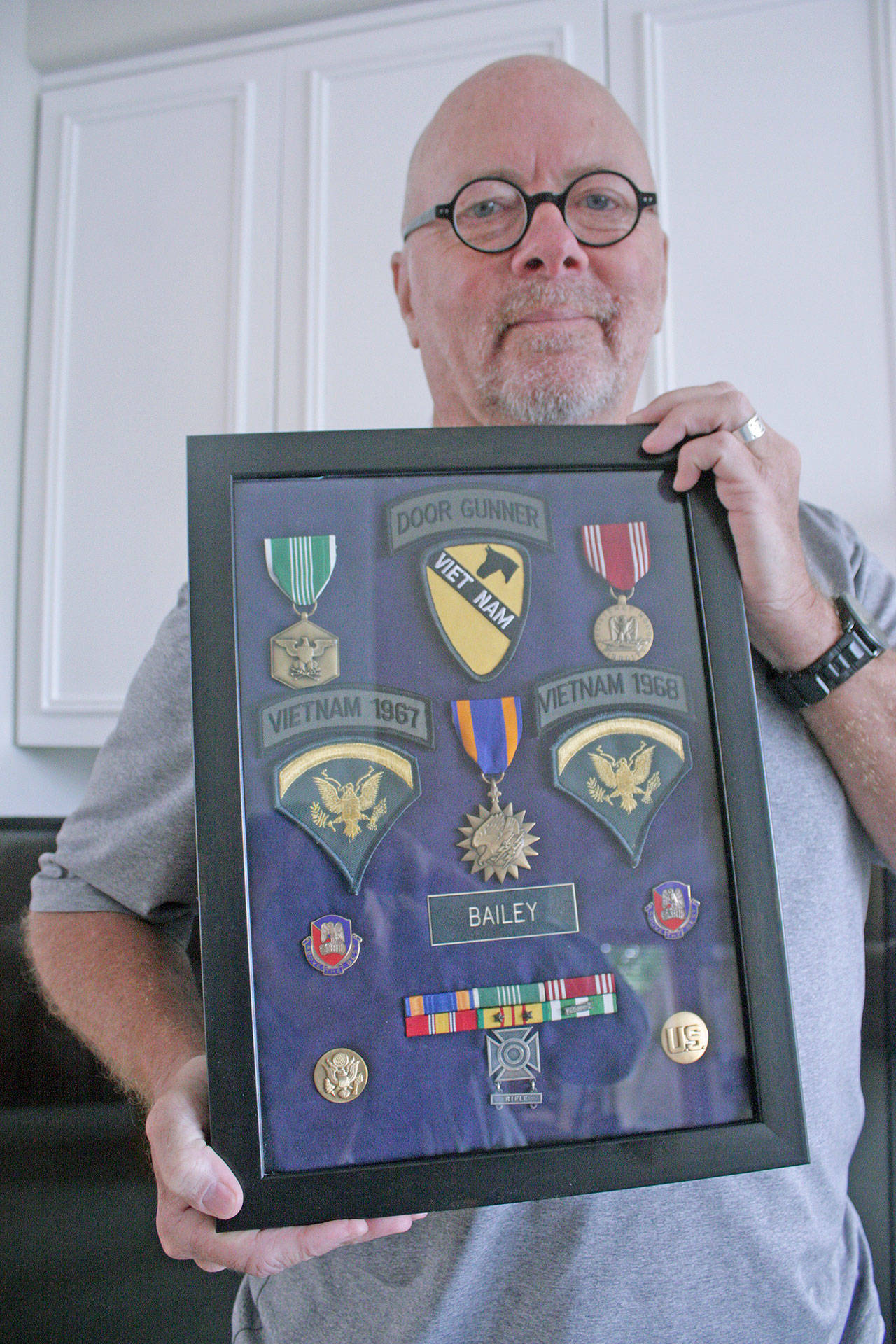Dissatisfied with college life in his native North Dakota, young Tim Bailey left campus to join the Army during the tumultuous 1960s.
Bailey was eager to serve his country and learn new skills, expecting perhaps to draw an assignment at a stateside base. What he didn’t expect, however, was the Army to ship him off to war-blasted Southeast Asia.
His tour of duty was in 1967-68, the height of combat in the jungles of South Vietnam. The intense experience – played out 50 years ago along the battle lines, valleys and highlands in the South Central Coast region of Vietnam – has remained an indelible part of his life.
“It was an interesting year, but I’m happy I went. I was proud I went,” said Bailey, recalling his days as a flight operation specialist and a combat door gunner for a “Huey” assault helicopter outfit, B Company, 227th Aviation Battalion, 1st Cavalry Division. “I volunteered … it was a job. Your mission was to survive the year, and you started counting down the days after you had reached six months.”
That Army specialist of the past, who turned 21 in Vietnam, is today a fit, active man who volunteers his time to the Auburn and Federal Way communities. Bailey, a member of Auburn’s VFW Post 1741, is a part-time, “temporary” King County security officer.
The Auburn man, a seasoned air traffic controller, looks much younger than his 70 years. And for that, he has family and friends to thank.
“I don’t think it affected me as much as it affected others,” Bailey said of his time in Vietnam. “It’s my personality, how I was raised. … Some people could handle it, others could not.”
In Vietnam, Bailey was responsible for many things, among them, assigning missions and being a part of them. The “Air Cav” was a swift, mobile force, instrumental in the transportation of troops, weaponry and supplies in and out of harm’s way.
Bailey often volunteered for door gunner duty, completing about a dozen combat missions to earn an Air Medal.
It was hazardous duty, played out almost nightly. A routine patrol called for the first helicopter to drop flares to light up the skies and stir up movement in a valley, Bailey explained. The second Huey, in which he flew, would bring in night-scope-guided snipers looking for any activity. A third helicopter, the gunship, would be called in if Bailey’s helicopter took in flak.
“There was a need … you just had to volunteer for it,” Bailey said of door gunner duty. “You had to step up and say, ‘You know? That’s something I think I would do.’ … You didn’t hesitate.”
Even on base, U.S. forces were prone to regular rocket and mortar attacks from the North Vietnamese.
“We got hit constantly,” Bailey said. “When I left, it was really getting hot.”
Six months into his tour, Bailey began to count the days before he could return home. But until that day came, the “short-timer” would have to endure frequent attacks and wade the carnage of the Tet Offensive in early 1968.
“I remember jumping into a foxhole one night. I couldn’t dig far enough to get down into the dirt. I thought, ‘Oh, God, I’ve got three days to go. .. I can’t die here,’” Bailey said, shaking his head.
“The next morning you would get up, get out and see what you lost,” he said. “You would put up the tents again, take the mission and get going.”
During his time in Vietnam, Bailey’s outfit lost 12 men, and he knew many of them.
“Fifty-eight-thousand (U.S. soldiers) were killed (in the Vietnam War),” Bailey said. “I got to thinking, ‘You take 58,000 and they probably touched 50 people themselves – relatives, friends, neighbors.’ And you multiply that … that’s a lot of people who were touched by the war.”
Not to mention millions of others – allied troops, the enemy, civilians – lost to the prolonged fighting.
His military service fulfilled, Bailey worked as a sky marshal, a treasury agent, deputy U.S. marshal and custom security officer before he settled in as an air traffic controller. His career of guiding planes, big and small, spanned nearly 40 years. Three years ago he retired from Sea-Tac’s Ramp Tower.
Bailey and his wife of 45 years, Julie, raised two sons and have lived in Auburn since 1986.
Looking back, Bailey is proud to have served his country and feels fortunate to have survived his time in Vietnam.
“It was the light at the end of the tunnel (that kept me going),” Bailey said, “that I am going to make it through this, hell or high water … and that nothing’s going to deter me.”



